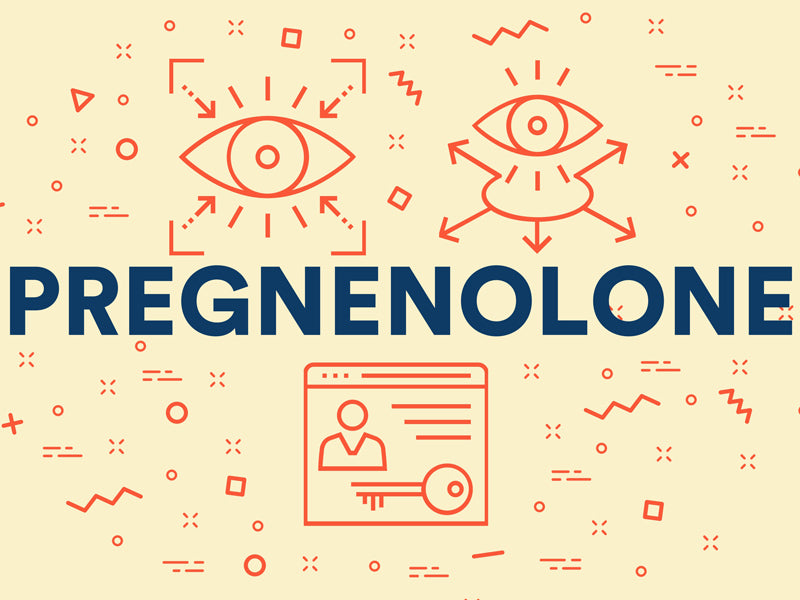
Pregnenolone, like DHEA, is a steroidal hormone manufactured in the body. Pregnenolone is a precursor hormone synthesized from cholesterol, principally in the adrenal glands, but also in the liver, skin, brain, testicles, ovaries, and retina of the eyes.
Pregnenolone and its derivatives promote neuronal activity by enhancing learning and memory, relieving depression, enhancing locomotor activity, and promoting neuronal cell survival (1). As with DHEA, pregnenolone levels naturally peak during youth and begin a long, slow decline with age.
By the age of 75 our bodies produce 60% less pregnenolone than the levels produced in our mid-thirties.
Some other hormones that decline with age are DHEA, estrogen, testosterone, progesterone, and growth hormone. These are considered biomarkers of aging as well. Since pregnenolone provides the initial raw material from which all the other steroid hormones are made, some of our other hormones will decline in a parallel fashion.
Benefits of pregnenolone replacement may include stress reduction and increased resistance to effects of stress (especially fatigue), improvement of mood and energy, reduced symptoms of PMS and menopause, improved immunity, and repair of myelin sheaths.
Pregnenolone levels are considered biomarkers of aging and replacement should be considered, especially if blood tests confirm this to be true.